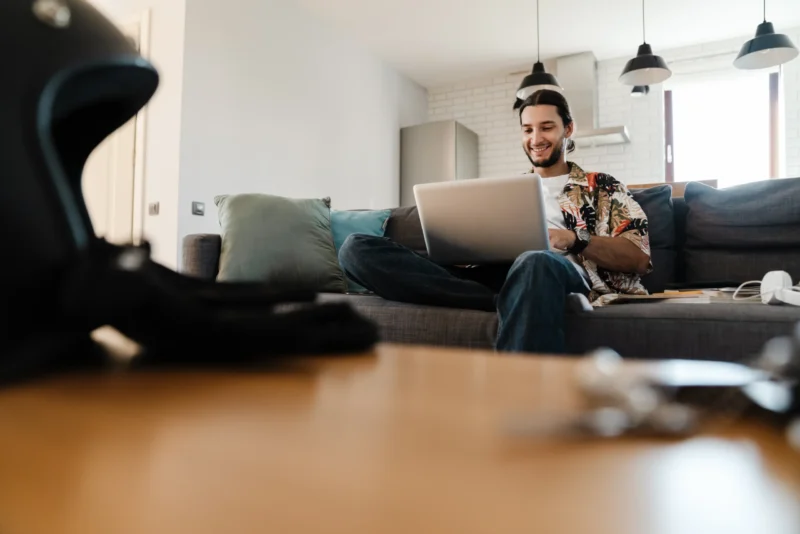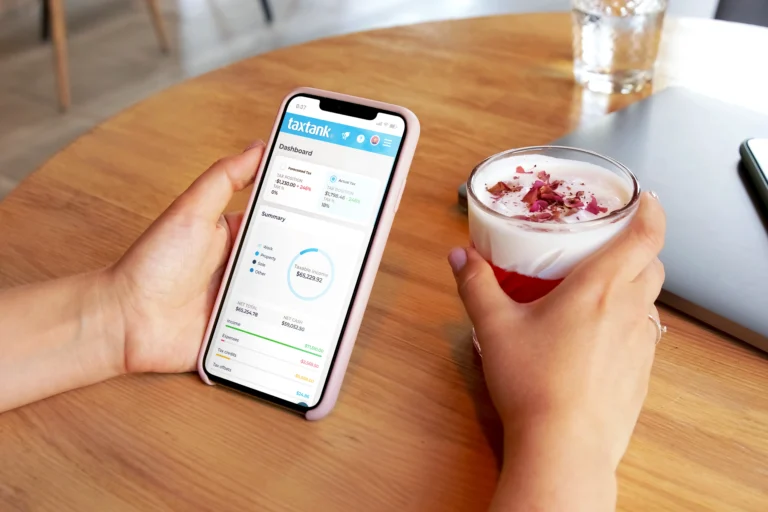Working for yourself isn’t always as easy and glamorous as it seems. Unlike being an employee of a company, you are solely responsible for securing contracts and making sure your clients get what they need on time. That means you take 100% of the risk, but also get to reap 100% of the rewards.
To help you maximise your business success, here are the top 5 tax deductions for sole traders.
Home Office Expenses
Thanks to a massive uptick in working from home, many Australian sole traders are experiencing all the benefits of working from home, like not having to commute, being able to spend more time with their families, not having to pay commercial rent expenses or overheads, and getting a little peace and quiet while they work.
There are a couple of different methods when claiming home office expenses for sole traders, namely running expenses and occupancy expenses. Occupancy expenses generally delivers a much bigger tax deduction because the ATO allows for claims on things like electricity, heating and cooling expenses, home office furniture, mortgage interest, rent, insurance and depreciation.
Keep in mind that claiming home office expenses will require some additional paperwork come tax time. However, the potential savings are well worth the effort.
Education and Training Expenses
As a self-employed individual, you know the importance of continuing your education and training in order to maintain a competitive edge. Luckily, the ATO allows you to deduct self-education expenses that are directly related to your business. This includes everything from online courses to in-person workshops and conferences.
In order to take advantage of this deduction, you’ll need to keep records of your expenses, including receipts and invoices. So as long as you can show that the courses or seminars assisted you in carrying out your business activities or developing necessary skills to enhance earnings, you should be able to deduct the cost from your taxes.
This tax deduction can help offset the cost of furthering your education and help you keep your business thriving.
Travel and Vehicle Expenses
If you use your vehicle for business purposes, you may be able to claim a deduction for the cost of running it. This includes things like fuel, maintenance and repairs. Public transport and accommodation costs when travelling for work are also considered tax deductible.
To claim these deductions, you will need to keep records of your expenses. This can include receipts, invoices, or bank statements. If you use your own vehicle for business travel, you will need to keep a record of your travel expenses using the logbook method.
Remember, you can only claim deductions for work-related travel expenses. So if you mix business and pleasure, you’ll only be able to claim a deduction for the portion of your travel related to work.
Clothing and Laundry Expenses
Sole traders may be able to claim a deduction for the buying or cleaning of their work uniforms. The key requirements are that the clothing must be distinctive and not suitable for everyday wear. Also, if the uniform helps protect you from the elements, or has a logo or message identifying your company name, it will be easier to claim.
The ATO also allows for the claiming of laundry expenses related to your uniform. Again, the best way to ensure you are claiming the right deductions is by keeping accurate records.
Tools, Equipment and Capital Expenses
If you’re self-employed, you’ll know how important it is to have the right tools for the job. Whether you’re a plumber, tutor, mechanic, or marketing specialist working with the correct tools can make your job easier and help you perform better.
Luckily, the ATO allows for deductions on tools and equipment used for work. This includes both major purchases, such as heavy equipment, vehicles, machinery, computers and software, and smaller items, such as pens and paper.
To claim this deduction, make sure to save your receipts and keep track of your tools and equipment expenses throughout the year. Its worth noting interest on finance to buy assets is also deductible. Current small business concessions also pave the way for big tax advantages so with a little planning you can maximize your deductions, increase your business capacity and reduce your tax bill at the same time.
Final Thoughts
As a self-employed individual, you can’t afford to leave money on the table when it comes to tax time. By carefully planning your operating expenses and keeping thorough documentation, you can reduce your taxes and put more money in your pocket.
TaxTank is a powerful tool that can help you do just that.
The benefit of TaxTank’s new Sole Trader Tank is that it automatically imports your business expenses from live bank feeds, so you don’t have to worry about missing or forgetting anything.
TaxTank also makes it easy to manage your receipts so you don’t have to deal with mountains of paper or old shoe boxes. Plus, with features like auto-invoicing, business reporting, and smart tools, you’ll know your tax position 365/24/7.
So whether you’re just starting out or you’ve been in business for years, TaxTank can help you manage your sole trader business expenses efficiently and effectively. Why not put the power of the TaxTank platform to work in your sole trader business and start saving on your business tax today?





